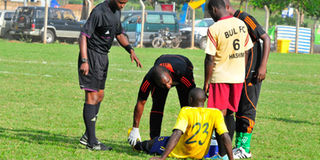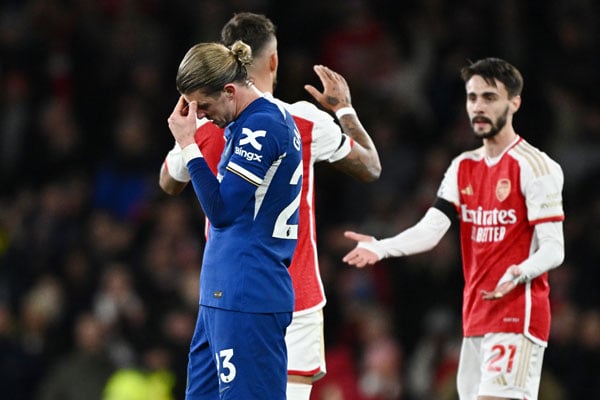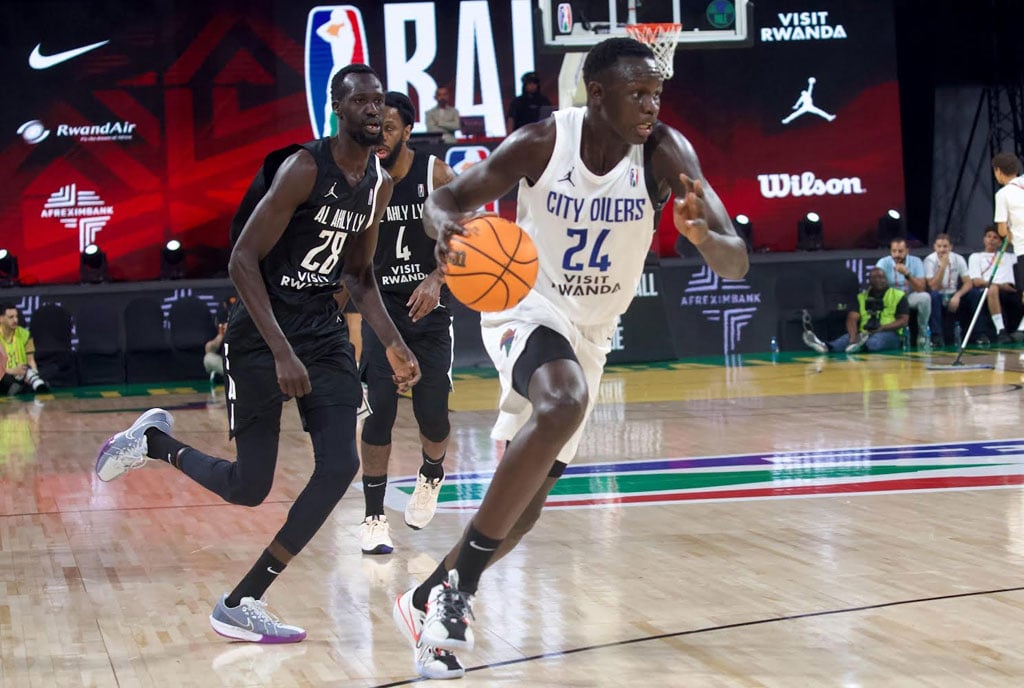Inquest into medical composition, preparedeness of clubs in Uganda

Bright Stars striker Anthony Bongole (23) is attended to by the club’s physio Muhamood Ssenyondo after he suffered injury in the match against Bul. photo by Eddie Chicco
What you need to know:
Soccer. Ssewanyana advised that a concussed player be laid off for at least three weeks as a precaution.
Kampala.
SC Victoria University’s Ivan Ssewanyana, has warned fellow physiotherapists that neglecting injuries, however minor, could prove fatal to players’ careers.
The SCVU phyiso, who has canvassed a wealth of knowledge, including the state of affairs in other clubs, by working with some local players called up to the national team was speaking to Daily Monitor in light of the medical preparedness of local football clubs. “You are better placed to deal with any incident, if you see it happen than when you have to rely on a player’s feeling at that time,” Ssewanyana emphasised. “They (players) have a lot of adrenaline running during games. It might be hard for them to back out of a game so they could say they are fine.”
Ssewanyana said there is need to improve the professionalism of medical personnel at clubs by ensuring they have the basic knowledge to cope with medical demands of players, among other things.
He stresses that; “timely referrals where one has failed and regular assessment of players’ health conditions can be the cheapest way to manage injuries.”
However, the Uganda Premier League communications manager Axam Senkayi, said there is a challenge to enforce the already streamlined health and safety guidelines due to financial limitations of clubs.
Life threatening medical emergencies are an infrequent but regular occurrence on the football field.
Last month, former Simba defender Fahad Musana died under mysterious circumstances. It is not clear if his death had anything to do with a knock he had on his head during a Uganda Premier League (UPL) match.
Musana, who was buried in Iganga, had a head-on-collision with, until then, teammate Joshua Kabale, during their 1-0 win over Entebbe at Nakivubo.
Few envisaged Musana, 24 at his death, would collapse and pass on 24 hours later while watching a Barclays Premier League (BPL) match between Manchester City and Chelsea.
A post mortem report, read during his burial, concluded that he had died of bronchopneumonia, an acute inflammation of the walls of the bronchioles (passageways by which air passes through the nose or mouth to the air sacs of the lungs). But it was contested by different doctors who spoke to Daily Monitor then, including Dr Vincent Karuhanga who attends to referrals from KCC.
Consensus hasn’t been reached over the cause of his death but the fatal happening has since stirred a debate on the medical preparedness and readiness of local sports clubs.
“You may find that there were no medical personnel to assess him (Musana) when he trained the next morning,” Police’s team doctor Nyende Kirunda said.
“Or maybe the doctor at Simba felt there was no need for further review after his initial assessment allowed the player back on pitch,” he added.
Extra care

Female referee Aisha Ssemambo calls on Police officials to attend to one of their injured players during a recent league game. PHOTO BY Eddie Chicco
Declining to contest the findings of the post mortem, Sports Club Victoria University’s physiotherapist Ivan Ssewanyana cautions that extra care should be taken at the training grounds too, where he has personally dealt with two cases of concussions.
However, in more disturbing findings, we learnt that some clubs hire doctors or physios for only the match days therefore such a caution would be hard to implement.
Overhearing a conversation between Bright Stars’ physio Muhammood Ssenyondo and one confidant of an official from Proline, the latter asked Ssenyondo to play team doctor at the then upcoming Big League opener away against Busia United.
“Jangu otukolereko tetulina musawo gwetutwala ku mupiira,” the Proline official said interrupting our interview with Ssenyondo at the Phillip Omondi Stadium in Lugogo. Translating to; “we don’t have any medical doctor to work with our team on match day, please bail us out.”
Ssenyondo refers his patients to Dr. Kisoro’s clinic in Kawempe. Like most of the other clubs that make referrals to different clinics and hospitals, the clubs and players share the costs of treatment as players are not insured.
Failure to learn
Ex-Cranes, SC Villa and Express midfielder Friday Ssenyonjo stresses that players’ injuries have long been ignored and the current happenings are a case of clubs failing to learn from the past.
“When I injured my right leg during my time at Villa, the club dumped me in Mulago. I could have died or lost my ability to walk while there but the doctors and nurses were helpful,” Ssenyonjo narrates.
SCVU’s Ssewanyana agrees that an injury, however minor, if neglected can cause an end to a player’s career. Ssewanyana stresses that a medical doctor should take as much keen interest in what is happening on pitch as the coaches and players do.
“You’re better placed to deal with any incident, if you saw it happen than when you have to rely on a player’s feeling at that particular time,” Ssewanyana shares.
“They (players) usually have a lot of adrenaline running during the games. It might not be easy for them to back out of game so they could lie to a doctor that they are fine just to continue. “So in case of something as dangerous as a concussion, you run a high risk of losing the player especially if you don’t take the initiative to reassess after the game.”
Ssewanyana advised that a concussed player be laid off for at least three weeks as a precaution.
“In the heat of the moment all you can do is to assess, probably by asking the concussed player a few simple questions like; what they can see, their teammates’ names and maybe what time they think it is among other questions.
Thorough scan
“Most importantly though, that player must have a thorough scan to assess their condition, irrespective of whether they got back on the pitch or not. In case of any issue you can’t deal with as a physio, you’ve got to do a timely referral.”
Another admission among the club physios we talked to is that the clubs don’t do regular health assessments of players. “Some clubs do these medical assessments when they sign the players but most commonly, we usually turn to the players only when they get injuries,” KCC physio Solomon Ndawula Walusimbi confesses.
Soana coach Richard Makumbi admitts his team has no medical personnel. Actually on match days, they make do with a player who hasn’t made the squad to attend to the rest in case of injury.
UPL’s communications officer Axam Senkayi, admits this is a huge challenge that will need a lot of time.
“We have the programs in place but as you know the status (financial) of our clubs, it is not easy to push them to the limit to attain the required standards of health and safety.
“The biggest challenge is enforcing that all these streamlined guidelines on safety and health are adhered to but we shall keep working hand in hand with the clubs and sponsors. We are confident that gradually we shall get there,” Senkayi said.




